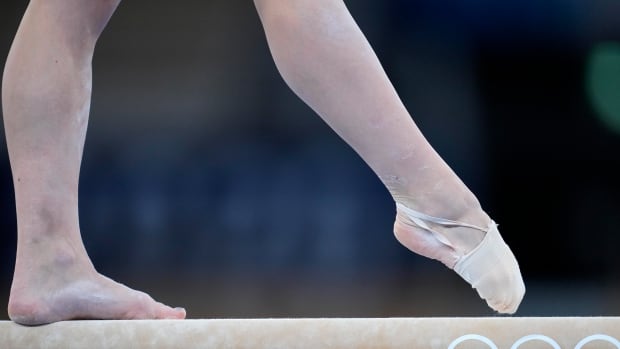A group representing hundreds of gymnasts who have survived abuse at the hands of coaches and sports organizations is asking the federal government to launch a national judicial inquiry to uncover past mistreatment.
In an appearance before the House of Commons Status of Women committee, Kim Shore — co-founder of Gymnasts for Change Canada, a group dedicated to eliminating abuse in gymnastics — asked for a judicial inquiry into human rights violations against athletes of all ages.
“Gymnastics is rotting from the top down and the bottom up,” Shore said. “I wonder how many of you would choose gymnastics for yourself or your own child if you knew what we do.”
Shore, whose group represents more than 500 former and current gymnasts, suggested that young children are being pushed too hard to perform and their personal safety is being put at risk by overzealous coaches.
She asked the committee members how many of them have ever had to “choose between the safe haven of their sexually abusive male coach, just to be spared from the outright cruelty of their female coach.”
Shore was one of the first witnesses to testify before the committee, which began hearings Monday on the safety of women and girls in sport.
She said that children abused in organized sports often grow up to harm themselves, develop eating disorders, suffer from self-esteem issues or require therapy.
“This is a reality for many child gymnasts in Canada — violence, degradation, humiliation and some of the worst abuse you can imagine, yet still there is no plan for prevention,” she said.
Tracking abusers
Amelia Cline, another co-founder of Gymnasts for Change Canada, said there is no up-to-date national registry to track coaches who have abused athletes and are finished serving their suspensions.
“Other trust-based professions, teachers, doctors, lawyers, we all have public disciplinary records,” said Cline. “Why wouldn’t we have a publicly available discipline record at that point?”
Rob Koehler is the head of Global Athlete, an international, athlete-led group working to address what it calls “the imbalance of power between athletes and administrators.” He told the committee that action needs to be taken to remove “evil behaviour” from the sporting world.
“Their lived experiences must be listened to, must be taken into account, and these evil behaviours that surround sport must be removed,” he said. “Athletes fear and do not trust the sport system.”
A human rights issue, not a sports issue
Koehler said that the current sports system has “dramatically failed athletes” and that sporting organizations cannot be trusted to regulate themselves when it comes to allegations of emotional, physical and sexual abuse.
He called on government to establish an independent body to investigate allegations of abuse, rather than leaving that task to sporting organizations that are not designed or equipped to carry out investigations.
“Abuse in sports is a human rights issue, not a sports issue,” he said.
Koehler said that while he will not share the stories of abuse he has been told by athletes, they were deeply disturbing.
He said that athletes no longer trust the sports system to act in their best interests, parents and athletes fear retribution when they speak up and confidentiality and non-disclosure agreements are preventing people from coming forward with allegations.
Last week saw members of Parliament continue their probe of Hockey Canada. That national sports body has been mired in controversy for months after the organization mishandled sexual assault allegations involving members of the 2018 world junior team.
An investigation into that sexual assault has been opened by police in London, Ont., while Halifax police are investigating a group sexual assault allegation involving members of the 2003 men’s junior team as well.
None of the allegations have been proven in court.
“What we’ve all learned from the Hockey Canada hearings is that people in positions of power, who are trying to hold on to the power, aren’t going to voluntarily come to the table, transparent, and with all the information we need to know to make things better,” Shore told The Canadian Press before appearing at the committee.
“And that’s why judicial inquiry is important, because we need the subpoena power to compel individuals to turn over documents and to share what has gone wrong in the past so we can fix the future.”


